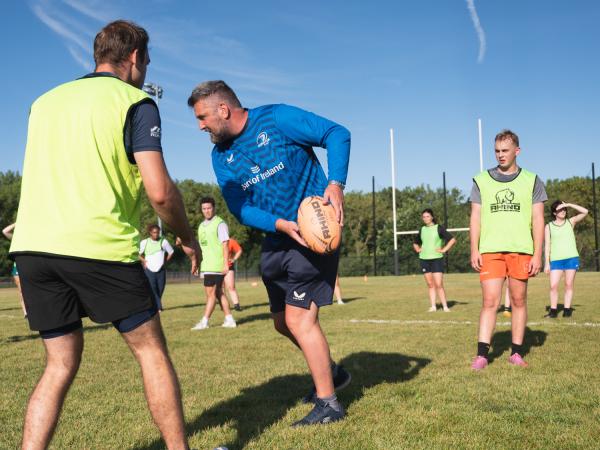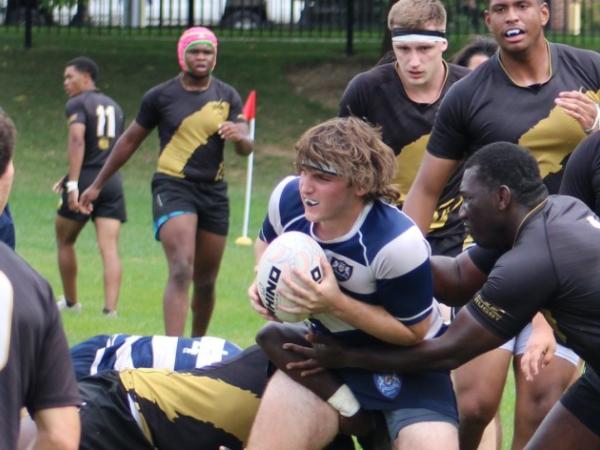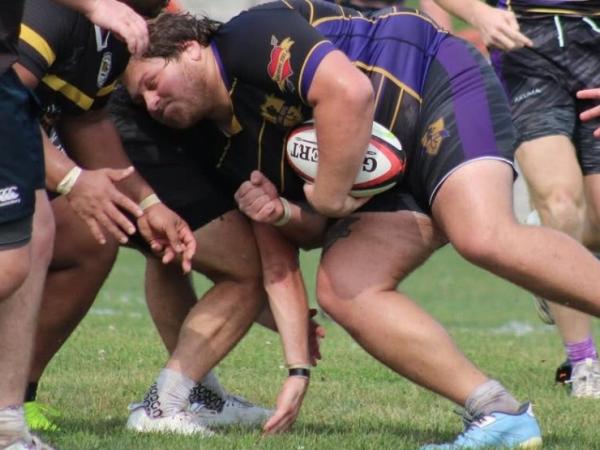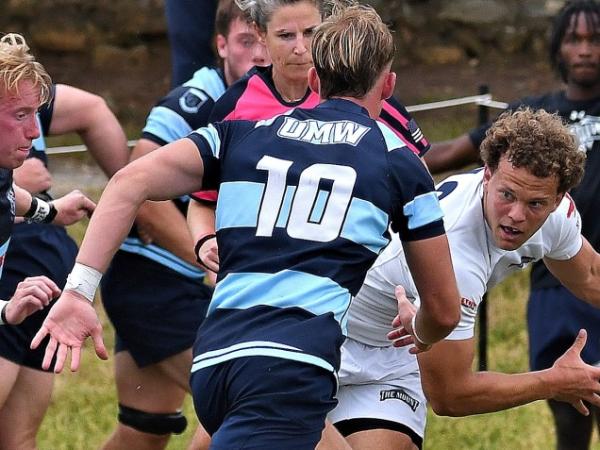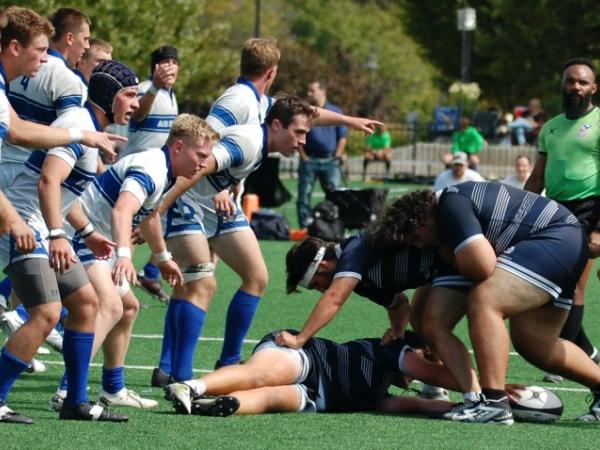It’s said that a drowning man may grasp even the point of a sword to save himself; well Tyler Kania hasn’t needed to go that far, but he did grasp a rugby ball, and it’s the rugby ball that will save him.
This article discusses mental illness and suicide. We at Goff Rugby Report encourage you to reach out to your community—your rugby brotherhood and sisterhood, counselors, mentors, and those who care about you if you are suffering. Dial 988 for help.
An unpredictable and exciting flyhalf for Central Connecticut State in his day, Kania has encountered an unpredictable life after college suffering two very rare injuries, and waging a constant battle with mental illness.
Kania is in the process of finalizing a book about his struggles titled The Maniac with No Knees, in which he describes his rugby triumphs as a player and a coach, and how he blew up his relationships and his prospects because he was, and is, bipolar, and he resisted help.
All of that, the good:
“I felt so powerful when I played Fly Half. The Fly Half is a maestro who orchestrates his symphony of teammates around the field by commanding, passing, and kicking. I loved being in control. I felt like an artist on an empty canvas. It wasn’t as fun to play the other positions because you had to depend so much on the Fly Half. I was confident in my ability and didn’t want to depend on anyone else.”
The bad:
“When I ruptured my left patellar tendon in practice on September 18th, 2016, I truly lost my mind for the first time. I lashed out at the people around me - the people that cared about me like my girlfriend and my boss… when my knee went into my quad for the first time, the madness inside of me, became onset.”
The ugly:
“For the first time in my life, I was thinking a lot about suicide.”
Playing in Saranac Lake and being courted by major select sides, Kania ruptured his patellar tendon—the tendon that attaches your kneecap to your shinbone. When it ruptures, the quadriceps tendon then snaps your patella (your kneecap) up into your thigh. It is very rare; the National Institutes of Health says the injury happens to about 0.68 people out of 100,000. Not quite one in a million, but more like seven in a million. He would later do it a second time, which has a commonality rate around one in several billion.
After the first time he was 24, he had a debilitating injury, and he’d lashed out at his girlfriend, destroying that relationship and quitting his job.
“That was the first time I had an experience with mania,” Kania told GRR. “I went crazy. I quit rugby. I lost everything. Then the depression came and it stuck with me for five years. I didn’t want to play. I didn’t want to talk to anybody.”
He resolved to commit suicide, and only decided not to go through with it because of a friends wedding followed by an old rugby friend inviting him to his birthday party. That was all it took. Kania went to the party, talked to some people, and people started telling him, you’ve got to get back play. Somehow he found himself a few days later watching a game.
Towards the end of the game a back got hurt and Kania was talked into running on. Tie ballgame, Kania made a break and set up the winning try. Suddenly he was back in the world. He was playing 7s all summer, back with teammates. He started playing flyhalf when the 15s season started only to get hurt before the first match. The next day a coaching job became available at a college by his house.
Tyler Kania’s story from there, covering the last few years, tracks him discovering that he’s a pretty good rugby coach—he led the Eastern Connecticut State women’s team to a conference championship. But his condition still haunted him. Kania’s crypto currency venture was hacked and robbed. As the team was winning, he was falling into despair.
“I was all alone; I didn’t have anyone around me,” he told GRR. “I was still manic. The girls knew something was off … I was yelling at them and was disorganized. It sent me down a really bad hole. I lost the job and didn’t leave my bed for six weeks.”
When he’s manic, Kania embraces a task. He might drive for 20 hours to attend to a task he needs to do RIGHT NOW. He might obsess over a setback. He might write a book. When the mania leaves he crashes into depression, which can lead to substance abuse, suicidal thoughts … giving up.
It’s the two poles of being Bipolar.











